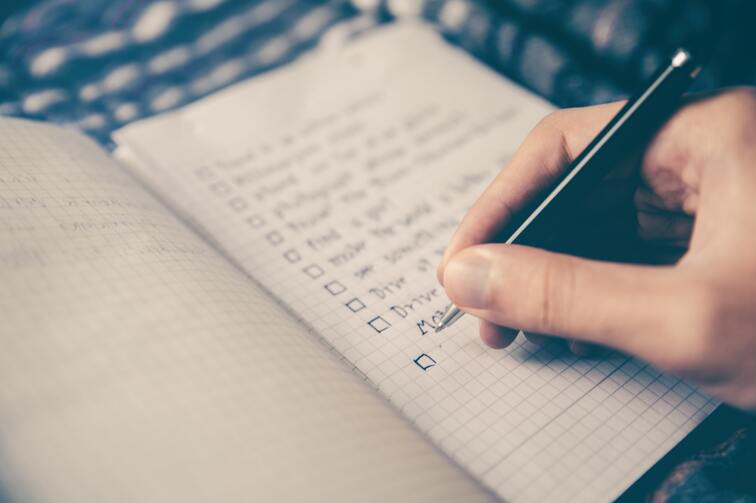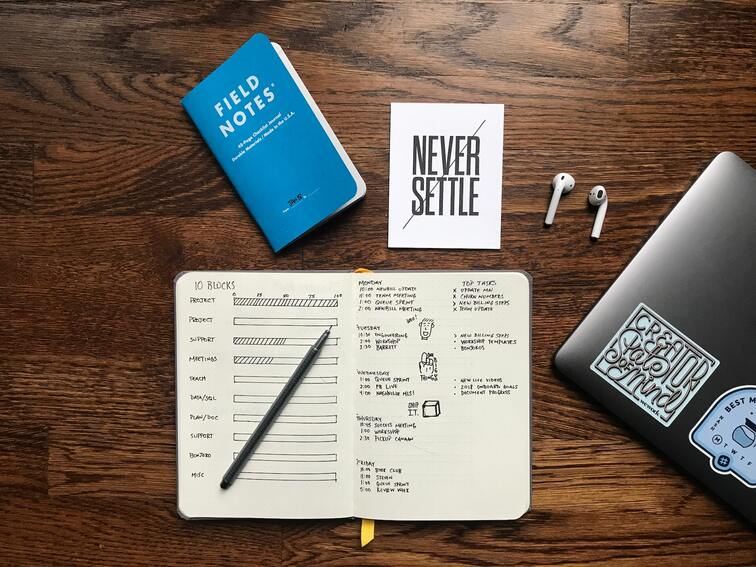Getting your work done is a challenge, right? You've got to be productive and efficient, but it's also easy to become overwhelmed by the amount of things you need to accomplish. In this blog, we'll explore how selective attention can help you manage your time better at work by helping you focus on the tasks that are most important in your life.

Why Is Selective Attention Important?
Selective attention is the ability to focus on one task at a time. While psychology approaches the concept under the macro term of selective auditory attention, it's different from multitasking, which means doing two or more things at once and switching between them frequently. Instead of giving your full attention to one thing, selective attention allows you to separate yourself from distractions so that you can perform the task at hand effectively.
Selective attention has several benefits: it allows for greater productivity because your mind isn't constantly jumping back and forth between tasks; it reduces stress levels by allowing you to focus; it improves concentration by making tasks easier; and it improves memory retention by increasing brain activity in areas related to learning new information or recalling past experiences.
There are also downsides associated with selective focusing—some people find themselves unable to complete tasks due their inability (or unwillingness) in staying focused long enough on any given task. Approaches such as dual-tasking and multi-tasking impose additional challenges in this domain.
What is selective attention in the context of productivity and processing?
You can think of selective attention as a form of cognitive control, and it’s an important part of executive function.
Selective attention can be defined as
“A process by which we attend selectively to particular events or objects in our environment and ignore others” (Dewey & Eriksen, 1977).
This means that you are able to focus your attention on what matters most at any given moment—and then adjust accordingly if necessary. You might notice something out of the ordinary today, but then completely forget about it until tomorrow when another similar event occurs.
Selective Attention and Focus
When observed under the lens of focus, selective attention is the ability to focus on a specific task while ignoring distractions. It's not the same as focus, which is the ability to stay on task and ignore distractions. Focus is a skill that can be learned, practiced and perfected over time through deliberate practice—but selective attention is something you're born with.
Selective attention allows us to pay close attention when something important needs our full attention (like driving), or when we need to perform at our best (like being in an exam). It also helps us tune out if things don't matter enough for us to pay attention yet do so now (like during meetings).
The Benefits of Selective Attention
We can approach selective attention as an asset especially when it comes to our day to day productivity. Here is a sneak peek into what mastering selective attention could grant you in the macro-level.
Top 4 Selective Attention Advantages
Increased productivity
Improved work-life balance
Improved attention span and efficiency (you’re more likely to get things done)
Improved memory and communication skills
Here’s a deeper dive into theories of selective attention in psychology. But, the question is, how do we master selective attention?
How To Master Selective Attention
There is not one guidebook that outlines what mastering selective attention exactly entails. But here’s how you can get started on enhancing your approach and better grasping what selective attention looks like for you:
Be mindful of your attention span.
Create a routine.
Put in the time to perform a given task, even if it's not especially important or urgent at that moment. If you don't want to do anything else but work for an hour, then do so! The more often you can get into this zone (the zone where you're being productive), the better off both your work and personal lives will be.
Create your own space for focused work by setting aside blocks of time during which nothing else happens except for tasks that require full attention from start to finish (and preferably no interruptions). This is where things like meditation come into play—they can help improve concentration levels so that when there's something important happening within these blocks of time, they'll stand out as such because they demand greater focus than other activities might have demanded in previous similar situations."
Let’s unpack these further.
1. Be mindful of your attention span.
The first thing you should do is be mindful of your attention span. This means paying attention to one thing at a time, without letting it get too long or too short. If you have trouble staying focused on one thing for very long, then try focusing on multiple things at once instead—it may seem like the opposite approach but it’s actually more effective in many ways!
Here’s a useful article on how mindfulness tactics can help refocus your attention.

2. Create a routine.
If you're like most people, it can be hard to stay focused on your work when there are so many other things vying for your attention. The key is to create a routine that helps you stay focused and motivated. For example, set aside blocks of time where everything has been arranged in advance so that at least some part of each day is dedicated solely to working on tasks that need doing.
If this sounds difficult or even impossible, consider making it a part of your daily routine instead: go into the kitchen before breakfast and write down all the things still left undone from yesterday's task list; do this every morning before heading out the door—and then stick with them!
In order for this strategy to work well, however (and especially if it's something new), make sure that what gets done has value: if possible don't just do one thing at a time; try breaking larger projects up into smaller chunks which individually seem insignificant but together add up quickly enough so as not waste time feeling overwhelmed by thinking "I have too much stuff going on right now."
3. Put in the time to perform a given task.
Put in the time to perform a given task
The third step is putting in the time to do a given task. This can be difficult for many people, but it's crucial if you want to maximize your productivity and performance levels. The benefits of putting in the time include:
You'll get better at what you're doing
You'll feel less stressed out because all that extra effort forces your brain into a more relaxed state of mind (which helps reduce stress levels)
4. Create your own space for focused work.
You can't be productive if you don't have a place to work.
You're going to need a quiet place in which to focus on your work, and it's important that this spot is conducive to focused work. The best way I've found for myself is by creating an office space where I can set up my laptop and dedicate myself entirely to my work: no distractions allowed!
This doesn't mean that all of your desk space needs to be cleared out—just find somewhere within reach where you can write notes or take phone calls while still quieting down enough so as not be disturbed by others around you (which could lead them into distracting conversations themselves).

5. Set goals for what you want to accomplish.
Before you start working, it's important to set goals for what you want to accomplish.
These are the same as the end result of your task or project, but they're more easily articulated in terms of how far along you want to get before completing it.
For example: "I need to finish this project by Friday," or "I will have completed this task by Monday." Setting measurable goals will help ensure that they're achievable and allow for progress tracking throughout the course of your workday.
6. Set aside blocks of time for tasks of varying importance and difficulty.
Set aside blocks of time for tasks of varying importance and difficulty.
Selective attention is a skill that you can develop with practice, but it's always good to have some rules in place when it comes to your work schedule.
If you're working on something that's important and valuable, then don't let other things get in the way of getting it done as soon as possible—for example, if you've got an assignment due tomorrow morning at 9AM, don't put off doing some research until later tonight because there will be no way for anyone else around here (or anywhere else) at 10:30PM when they come back from their night out with friends who are going somewhere fun after dinner! That would make them late too...

You can be more productive at work by creating a focus routine that allows you to manage multiple priorities at once
You can be more productive at work by creating a focus routine that allows you to manage multiple priorities at once. This may sound like an impossible task, but it's actually pretty simple. All you have to do is make sure that each task gets its own block of time, and then schedule the blocks of time in your calendar so they are easy to find when you need them.
If your tasks require a lot of attention or concentration (for example: doing research or writing), then break them up into smaller chunks so that they don't take all night long! You might want to start with 5 minutes per chunk; if necessary, adjust accordingly until this becomes second nature for you.* Also remember: there will be times when things come up during which interruptions may occur - try not letting those get too bad because otherwise, it'll prevent me from getting any work done!
Create a Focus Routine
Selective attention takes time, but it’s worth the effort. It can help you get more done in less time and with a greater focus on your most important goals. Once you master selective attention, you’ll be able to manage multiple priorities at once while still remaining mindful of your surroundings. And as a result? You’ll be more productive at work and happier in general!
What’s great is that when it comes to optimizing your attention and managing your focus, you don’t have to be alone. Tools like BeforeSunset can help you reorganize your daily schedules, prioritize your tasks and responsibilities, and enhance your productivity.


